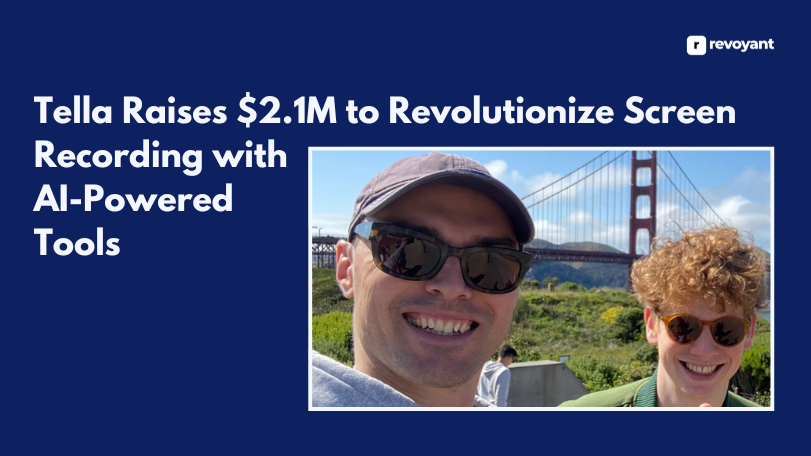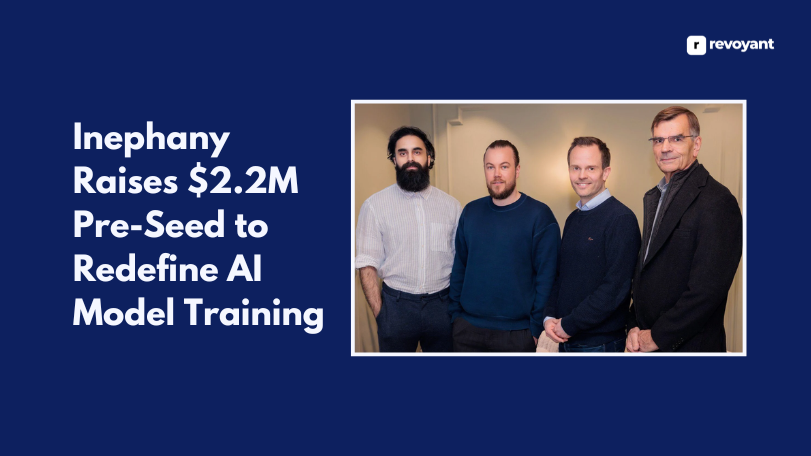Marketing and sales teams are increasingly challenged to create more personalized and effective campaigns that meet rising customer expectations. With around 90% of marketing professionals now using AI tools to automate customer interactions, AI has become a crucial element in modern marketing and sales strategies.
In this article, we’ll delve into how AI agents drive conversions through automation, explore their role in shaping marketing strategies, and highlight AI-powered tools that enhance sales efforts. We’ll also provide real-world use cases and practical tips for integrating AI into your marketing and sales tactics.
Key Takeaways
- 90% of marketing professionals use AI tools to automate customer interactions.
- AI plays a critical role in enhancing personalization and driving more effective campaigns.
- Businesses must prioritize data protection and transparency when collecting sensitive user information.
- AI-driven automation can reduce costs by handling tasks that once required manual staff input.
- Maintaining trust and security when dealing with sensitive data is vital for customer confidence.
The Role of AI in Enhancing Marketing Strategies
AI is revolutionizing marketing by empowering businesses to make data-driven decisions through predictive analytics and customer segmentation. This enables companies to create highly personalized content and recommendations that boost engagement and conversions.
Predictive Analytics & Customer Segmentation
Predictive analytics allows marketers to quickly analyze large datasets, saving both time and resources. By leveraging machine learning algorithms, businesses can better understand their audience through insights from data such as browsing habits and purchase history.
Companies like Natural Cycles utilize these insights to segment customers into distinct groups, enabling them to craft more targeted and personalized messaging across various channels, resulting in higher conversion rates. The predictive analytics capabilities provide valuable, data-driven decision-making support throughout the process.
For example, Natural Cycles uses Optimove for customer segmentation, grouping users based on behaviors like purchase timing and offer preferences.

Hyper-Personalized Content & Recommendations
AI tools quickly generate highly personalized content by analyzing user actions, such as website interactions or social media engagement. These AI-driven tools enable businesses to send tailored messages that resonate with users, improving conversion rates by delivering highly relevant content.
Unlike traditional, generic promotional emails that failed to address personal preferences, modern AI-powered approaches increase engagement and yield higher returns. Personalized marketing strategies allow businesses to meet customer expectations and foster deeper connections.
This approach optimizes marketing efforts by reducing wasted spending and focusing on campaigns that capture specific attention. As a result, businesses can create more meaningful customer experiences that drive sales and build stronger relationships.
Dynamic Advertising Content
AI also enhances dynamic advertising by personalizing content based on engagement metrics, KPIs, and real-time feedback. For example, The North Face tripled conversions by renaming a product after AI analyzed search terms.
AI can instantly adjust ad content to maintain relevance and effectiveness, tailoring messaging, visuals, and calls-to-action for specific audiences to ensure each impression adds value.
AI-Powered Tools Transforming Sales Processes
AI-powered tools are revolutionizing sales, streamlining the process for businesses to close deals. With AI-driven analytics, lead generation, and performance-enhancing features, sales teams can concentrate on what matters most—building relationships and converting prospects into customers.
AI for Sales Analytics
AI leverages predictive analytics to forecast sales trends, optimizing inventory levels by identifying sales data patterns.
Predictive modeling helps businesses anticipate seasonal fluctuations, enabling informed decisions about production quantities.
Business intelligence tools also analyze customer behavior through emotional analysis, enhancing customer satisfaction. Predictive analytics offers data-driven insights that improve sales forecasting, refine sales processes, and integrate business intelligence for better decision-making.
AI for Lead Generation
AI-powered tools also transform lead generation by prioritizing the best prospects. Companies use engagement data to identify high-value leads. For example, U.S. Bank increased deal closures by 25% and boosted lead conversion rates by 260% using Salesforce Einstein.
AI for Lead Generation leverages machine learning to score leads, helping businesses focus their efforts on the most promising prospects. By analyzing customer behavior, such as purchasing patterns and engagement with the company, AI agents identifies new leads and optimizes sales prospecting.
AI tools can analyze large volumes of data to uncover potential customers and grow the business. As companies like U.S. Bank demonstrate, AI can significantly boost lead conversion and deal closures.
AI to Boost Sales Performance
AI tools also enhance sales operations and performance. For example, Iovox’s AI-powered tools like WebConnect and WebCallBack have helped businesses increase leads by 20%.
Honda used Iovox’s call tracking technology to reduce lead recall time by 40% and achieve a nearly 60% increase in conversions. AI-driven sales tools like these refine sales strategies, improve decision-making, and optimize performance across the board.
Key Use Cases of AI in Marketing and Sales
AI is revolutionizing marketing and sales through powerful use cases like cross-sell promotions, website personalization, and churn identification, unlocking new potential for businesses.
Cross-sell Promotion
Cross-sell promotions encourage existing customers to purchase additional products or services based on their past behavior. For example, a business might suggest socks to a customer buying sneakers.
By leveraging customer segmentation data, such as buying patterns, businesses can create targeted marketing campaigns that effectively engage specific customer groups. Cross-sell promotions can also be delivered through email or phone, targeting customers who are likely to benefit from complementary products or services.
Website Personalization
Website personalization uses individual customer data—such as location and purchase history—to deliver tailored content recommendations. AI analyzes user behavior, including click-through rates and browsing patterns, to optimize the website experience.
Personalized websites improve conversion rates by showcasing relevant items that align with user interests, increasing the chances of a purchase. This contrasts with non-personalized sites, where visitors may leave without engaging, ultimately boosting sales over time.
Customer Onboarding
AI-driven customer onboarding uses personalized messaging and automation to enhance the new customer experience. By analyzing data like purchase history or browsing patterns, AI helps businesses create focused onboarding processes that drive higher conversion rates.
AI-powered tools enable businesses to send tailored messages through customers’ preferred channels—email or text—ensuring quick engagement. Machine learning tools also map customer journeys, automating routine tasks like sending introductory messages and streamlining the onboarding process.
This approach reduces manual tasks, freeing up resources for more meaningful interactions and improving onboarding efficiency. By automating lead generation and using dynamic content, businesses can nurture customer relationships from the start, increasing loyalty and long-term revenue growth.
Churn Identification and Prevention
AI plays a critical role in churn identification and prevention, helping businesses retain customers. Customer churn refers to the loss of customers over time, which can be costly for businesses.
AI tools analyze customer data, including interactions, purchase history, and feedback, to identify signs of disengagement, such as reduced purchases or inactive accounts. By detecting these early warning signs, companies can take proactive measures, such as offering targeted promotions or addressing customer concerns, to retain at-risk customers.
Predictive analytics helps businesses forecast which customers are most likely to churn by analyzing historical data. By employing effective churn prevention strategies, businesses can significantly improve customer retention, drive growth, and maximize long-term profitability.
Advantages of AI Agents in Sales
AI agents are transforming sales by enhancing decision-making, increasing conversion rates, and improving productivity for businesses.
Enhanced Decision Making
AI improves decision-making by providing real-time insights. For example, tracking advertising performance helps businesses make informed decisions that refine their sales strategies.
AI-driven decision support systems process large data sets, leveraging advanced computing to detect patterns and predict trends. These insights enable businesses to adjust their marketing approaches for better outcomes, ultimately driving higher conversion rates.
Higher Conversion Rates
AI agents enhance conversion rates by optimizing workflows and automating responses, which speeds up sales processes. Quicker response times lead directly to higher conversion rates, an essential metric for measuring campaign success.
Automated workflows, powered by AI, streamline sales processes and use predictive analytics to offer personalized recommendations at scale across multiple channels, boosting conversion rates and campaign performance.
Improved Productivity
AI boosts productivity by automating repetitive tasks, such as data entry, allowing sales teams to focus on higher-value activities.
Automation simplifies tasks and enhances operations, increasing overall output and accelerating production. This leads to greater efficiency and more effective use of resources, helping businesses scale more quickly.
AI in Customer Interaction and Engagement
AI-powered chatbots are revolutionizing customer engagement by providing personalized interactions at scale through platforms like Facebook Messenger or WhatsApp.
Chatbots and Virtual Assistants
Chatbots and virtual assistants are automating customer service, offering 24/7 support to customers. By 2027, Gartner predicts that 25% of businesses will rely on chatbots as their primary customer service channel.
AI-powered virtual assistants improve the efficiency of customer interactions by using machine learning to understand and respond to queries accurately. This reduces support costs and enhances customer satisfaction.
Personalization at Scale
AI enables businesses to deliver personalized campaigns at scale, driving higher conversion rates. By using predictive analytics and customer segmentation, businesses can dynamically target customers with hyper-personalized content and recommendations tailored to their preferences.
Sentiment Analysis
Sentiment analysis helps businesses gauge customer emotions about their products or services. Using Natural Language Processing (NLP), this AI tool analyzes text data—such as reviews, emails, and social media posts—to detect emotions like happiness, sadness, or frustration.
By analyzing customer interactions, the tools identify emotional patterns that help businesses make informed decisions and increase leads by up to 20%. Understanding customer sentiment is vital for businesses aiming to improve their customer experience and engagement.
Implementing AI in Sales and Marketing
Successfully implementing AI in sales and marketing starts with developing a clear action plan and defining the goals and objectives that AI tools will help achieve. Companies should tailor these tools to address their specific business needs.
Creating a Clear Action Plan
The first step is to create a comprehensive action plan with defined goals and objectives. This plan should outline key performance indicators (KPIs) and metrics to track progress. It should include specific targets, milestones, and initiatives that guide efforts toward success.
A well-crafted action plan keeps teams focused on their goals and ensures alignment across departments. It should also specify tactics and strategies to reach those goals effectively. This strategic guide helps businesses make informed decisions, allocate resources wisely, and stay on track. Regular progress monitoring allows companies to adjust their approach when needed.
Customizing AI Tools for Specific Needs
Once a clear action plan is in place, businesses can customize AI tools to meet their unique objectives. Tailoring these tools to specific goals ensures greater control over outcomes while minimizing efforts spent on less relevant tasks.
Specialized AI tools offer numerous benefits, such as enhanced productivity through better resource allocation and more accurate decision-making. By targeting specific business needs, AI-driven insights help companies achieve more impactful results across various sectors.
Ensuring Adequate Data Protection Measures
As businesses integrate AI technology, ensuring robust data protection is critical. Strong security measures protect sensitive customer information and foster trust. When customers feel confident that their data is secure, they are more likely to share personal details, supporting effective AI-driven marketing and sales efforts.
Overcoming Challenges with AI in Sales and Marketing
While AI offers significant advantages in sales and marketing, it’s crucial for businesses to maintain a human touch in automation. AI should complement, not replace, human interactions. Companies must address ethical considerations and ensure transparency in their use of AI to build trust with customers.
Maintaining a Human Touch in Automation
AI agents are valuable for automating marketing tasks but lack the human emotions that help build strong customer relationships. To maximize effectiveness, businesses must find the right balance between automation and personal engagement.
Live interactions, such as phone calls handled by dedicated operators, are critical for addressing concerns effectively. By fostering a motivated and productive workforce, businesses can provide high-quality service, even in high-pressure environments like busy call centers.
Creating an environment where employees feel valued and appreciated can lead to improved job satisfaction, fostering innovation and driving business success. A motivated workforce enhances customer relationships, promotes loyalty, and supports long-term growth and profitability.
Addressing Ethical Considerations and Transparency
As AI continues to transform industries, addressing ethical concerns is vital. According to the BBC, AI could potentially replace up to 300 million jobs, highlighting the importance of balancing AI’s benefits with its societal impact.
Ethical challenges associated with AI include job displacement, accountability, data privacy, bias, and regulation. Companies must prioritize transparency when adopting AI to ensure they maintain customer and stakeholder trust.
Managing Data Quality and Accessibility
The success of AI in marketing depends on the quality and accessibility of data. Ensuring data integrity is essential for building customer trust and optimizing AI performance.
Robust data protection measures are necessary to safeguard customer privacy and maintain confidence in AI-driven processes. Effective data governance and security policies are essential for ensuring data reliability and maximizing AI’s potential. Businesses must focus on strong data management practices to improve marketing efficiency and achieve the best results with AI agents.
Case Studies Highlighting AI Success
Brands like Spotify, Lemonade Insurance, and L’Oreal are leveraging AI to create personalized customer experiences, improve conversions, and enhance operational efficiency. Here’s how they’re doing it:
Spotify for Personalized Recommendations
Spotify uses AI to deliver tailored playlists and artist recommendations. Through its recommendation algorithms, the platform analyzes user preferences and generates personalized content, such as the popular Discover Weekly playlists.
Spotify’s machine learning algorithms continuously evolve, improving with each user interaction. The more a user listens, the better the system becomes at predicting their tastes, leading to more accurate music recommendations.
This personalized approach has positioned Spotify as a leader in music curation, with algorithm-driven playlists updated regularly to keep content fresh and engaging. Features like DJ-powered playlists further enhance the user experience, making music discovery easier and more enjoyable.
Lemonade Insurance for Conversational AI
Lemonade Insurance has adopted conversational AI through its chatbot, Maya, to streamline the insurance process.
Maya processes claims in just 90 seconds, handling around 25% of customer inquiries. This fast, efficient service reduces the need for tedious paperwork and improves customer experience by offering instant resolutions. Powered by AI, Maya enables seamless interactions, allowing users to manage insurance claims quickly and effectively.
Lemonade’s use of conversational AI demonstrates how AI can simplify complex processes, helping customers manage risk more efficiently while enhancing overall service delivery.
L’Oreal with Visual Recognition
L’Oreal uses AI in its Beauty Genius assistant, which employs visual recognition technology to provide personalized beauty advice. The tool offers makeup diagnostics, augmented reality try-ons, and personalized beauty routines based on facial recognition.
This AI-powered assistant allows customers to virtually try on products, offering a more personalized experience and helping them make more informed purchasing decisions. The result is increased customer satisfaction and loyalty, as users enjoy a highly tailored shopping experience that fits their unique needs.
By integrating visual recognition and augmented reality, L’Oreal has successfully enhanced its digital presence, making beauty products more accessible and appealing to a wider audience.

AI Agents in E-commerce: Driving Personalization and Operational Efficiency
AI agents are transforming e-commerce by enhancing personalization and boosting operational efficiency. Utilizing machine learning and data analysis, they create a more tailored customer experience. The AI-powered e-commerce market is projected to reach $16.8 billion by 2030.
AI agents assist online retailers in offering personalized recommendations, promotions, and content, which leads to higher customer engagement and increased sales. By analyzing large datasets, businesses can uncover consumer behavior patterns and trends, allowing them to make data-driven decisions.
Future Trends in AI for Marketing and Sales
AI-driven predictive marketing is set to revolutionize business decision-making, making it more precise and reliable. As AI integrates with emerging technologies like the Internet of Things (IoT), it will further enhance marketing and sales strategies.
AI-Driven Predictive Marketing
AI uses predictive analytics to forecast sales trends, optimizing inventory management and resource allocation. Machine learning algorithms analyze customer data patterns to predict future buying behavior, allowing businesses to tailor their marketing efforts accordingly.
Integration of AI with Emerging Technologies
AI’s integration with emerging technologies offers competitive advantages in scalability, cost reduction, and operational efficiency. When combined with technologies such as blockchain and the Internet of Things (IoT), AI enables advanced automation solutions.
Conclusion
In conclusion, AI agents are reshaping the e-commerce landscape, driving personalized customer experiences and streamlining operations. By harnessing the power of machine learning and data analysis, businesses can engage customers more effectively, make data-driven decisions, and stay ahead of the competition.
As AI continues to integrate with emerging technologies like IoT and blockchain, the potential for innovation and growth in marketing and sales is vast. Embracing these advancements will not only enhance operational efficiency but also create more meaningful and lasting customer relationships, paving the way for a successful future in the digital marketplace.
Frequently Asked Questions
1. What are AI agents in marketing and sales?
AI agents are computer programs that use artificial intelligence to automate tasks in marketing and sales – they help businesses boost conversions and improve customer interactions.
2. How do AI agents automate marketing and sales tasks?
AI agents use machine learning algorithms to analyze customer data – predict behavior – personalize messages – they also handle routine tasks like email marketing and lead generation.
3. Can AI agents really boost conversions?
Yes – AI agents can analyze vast amounts of data – identify patterns – optimize marketing campaigns for better results – they also help sales teams focus on high-quality leads.
4. Do I need technical expertise to use AI agents in marketing and sales?
No – many AI agent platforms are designed for non-technical users – they offer intuitive interfaces – drag-and-drop tools – customer support teams to help you get started quickly.



